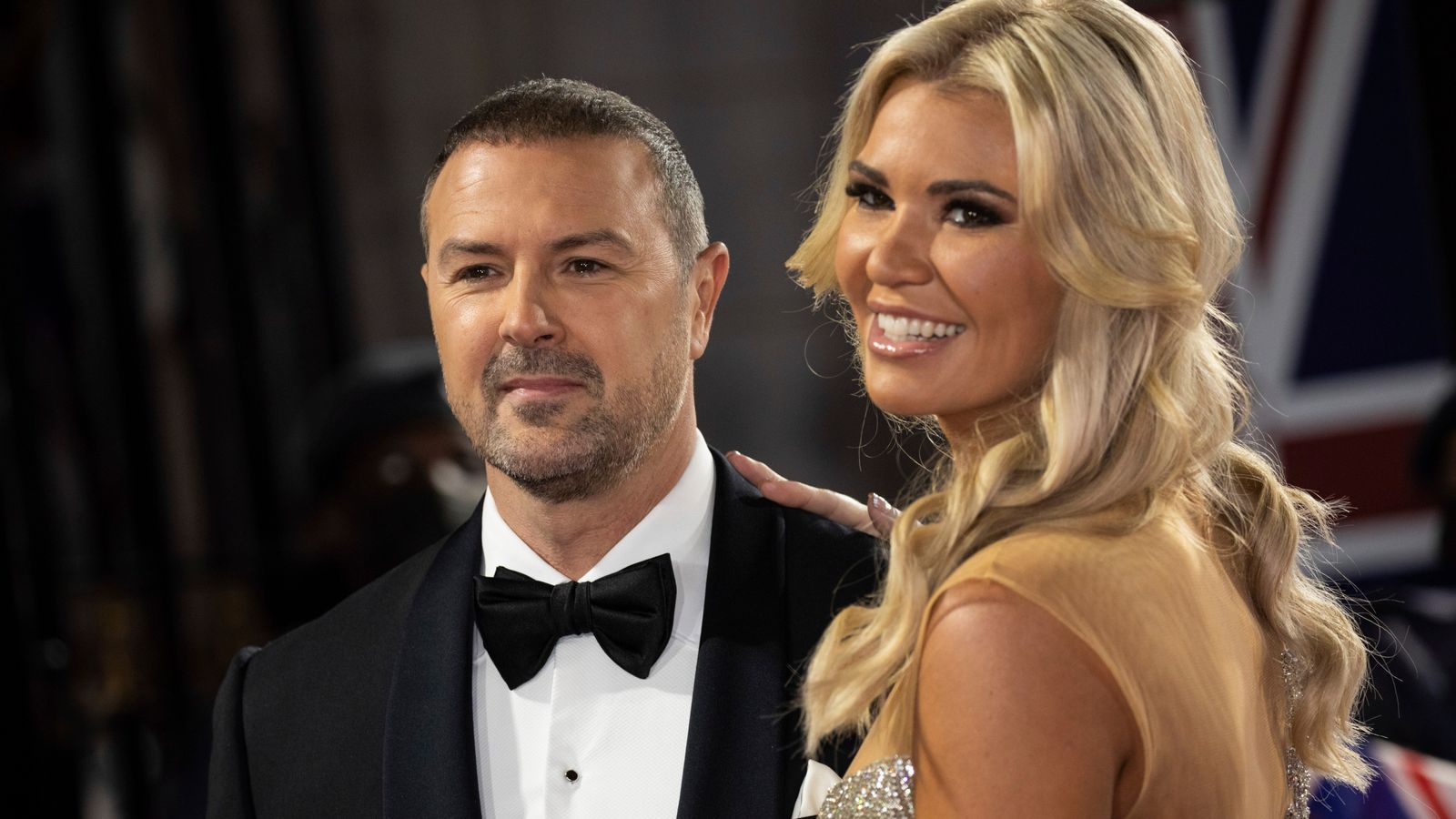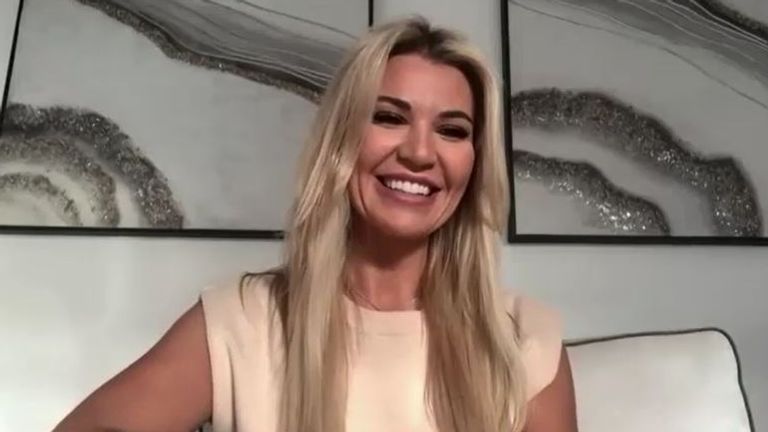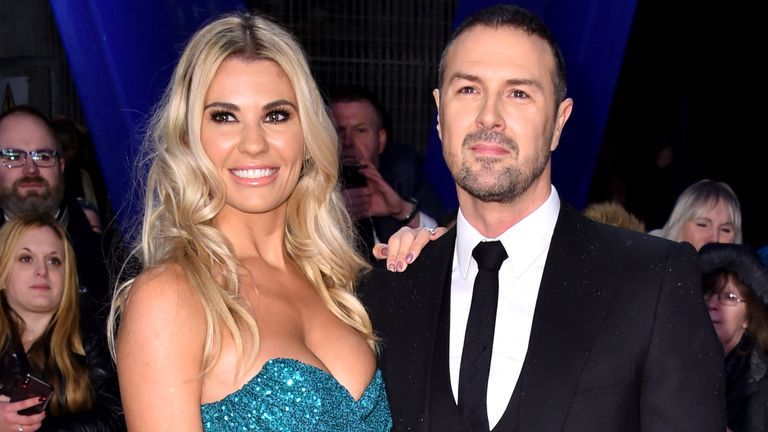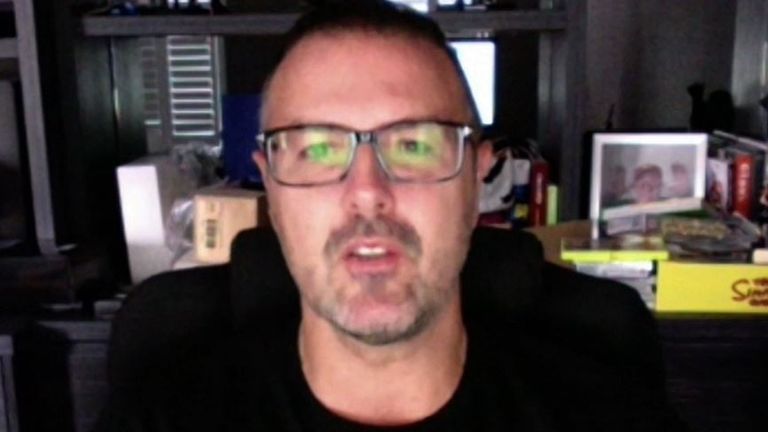Christine McGuinness: TV star ‘trying to be a bit more myself now’ after ‘amazing’ diagnosis of autism
TV star Christine McGuinness has told Sky News she is trying to be a bit more herself now after an “amazing” diagnosis of autism at 33.
She is one of a handful of celebrities being praised by campaigners for talking about making the discovery later in life – as doctors say thousands of autistic women and girls are still being misdiagnosed.
It was during the filming of her new documentary, Our Family And Autism, that Christine began to question her own experiences more deeply.
She had set out to make the film, with her husband Paddy McGuinness, to talk about their experiences raising their three children – who are all autistic.
But as the project went on, she began to recognise more parallels with her own experiences growing up.
“I always felt different. And I always felt very similar to the children,” Christine told Sky News. “I really struggled to fit in. I became quite reclusive – in my 20s I stayed in, stayed at home pretty much for around eight years.”
“Food was always a big issue. Sensory things around food – the taste, the smell, the texture. Being in busy places, going out shopping, events, everything. I always found it really overwhelming.”
As part of the documentary, she and her husband decided to take a test measuring different autistic traits. The results, she said, were not a complete surprise. She had scored way above average.
It led to her receiving a diagnosis of autism at the age of 33.
“It’s been an amazing thing for me to have that diagnosis,” she said.
“I’m trying to be a bit more myself now, I’m trying to just relax and accept this is me, this is who I am. I want autistic people to feel comfortable in their own skin, to be able to do that.”
Christine is one of a handful of female celebrities who have recently opened up about being diagnosed with autism later in life.
She is also one of thousands of autistic women that specialists say are either being misdiagnosed, or not diagnosed at all – because of stereotypes and misconceptions about the condition and how it presents in women.
The National Autistic Society says the ratio of men to women diagnosed with autism is around three to one. When girls are diagnosed, it can often take much longer – the median age of diagnosis for boys is 10, but for girls it’s 13.
There are various theories on why this is – including that girls can be better at hiding, or ‘masking’ their condition, and that teachers tend to under-report traits of autism in girls.
Helen Ellis is another of these women. She first began to feel that she was different as a teenager.
Aged 13, a family holiday to Disneyworld ended in her locking herself away in her hotel room while her mother and brother went out to enjoy the park, feeling her senses were completely overwhelmed.
At home, arguments with her brother became constant, as she struggled to understand why he was able to be happy and make friends, and she could not.
It was only at the age of 22 that she was able to get the autism diagnosis she had been suspecting. Five years earlier, she had visited her GP with the backing of her mum who was working as a teacher supporting pupils with behavioural issues, and who had recognised the signs.
But her GP dismissed their concerns – telling Helen it was nothing more than ‘hormones and exam stress’. She left the appointment in tears.
“It was tough because at that point, I did start to doubt myself and my mum’s idea and I was like, maybe he is right. Maybe it’s just me,” Helen said.
“Maybe I’m just a difficult person and for various reasons, I’m not keeping control of my emotions. Maybe I don’t make friends because I’m not a likeable person.”
Dr Sarah Lister Brook, clinical director for the National Autistic Society, says she is still seeing far too many women later in life who have been misdiagnosed – often leading to mental health issues because of the constant struggle of trying to hide their condition and fit in.
She says persistent stereotypes about the condition – the idea that all autistic people struggle to make eye contact for instance, or will always have difficulty communicating – are damaging and fail to take into account the wide spectrum of the condition, and how differently it can present.
Dr Lister Brook told Sky News: “Someone assessing a child may see that the child is quite happy to play with lots of different materials and play quite creatively and imaginatively. That’s not the stereotype that most professionals expect to see when they’re thinking about autism, so that can often confuse them.”
She said her key advice to parents who might suspect their daughter is autistic is to trust their own instincts. “If you have noticed things, if you have concerns, find a professional who is prepared to listen.
“It does take time and it does need a professional with some knowledge and awareness to help that family get on the right pathway to accessing services. Don’t give up trying is my advice.”
Helen has now co-authored a book drawing on her own experiences with autism, and explaining the phenomenon of ‘masking’ – the kind of techniques and tricks that women and girls often use to hide their condition and fit in.
She hopes that educating people in this way will lead to many more women feeling able to live as their true selves, and no longer having to hide.
For all the latest entertainment News Click Here





